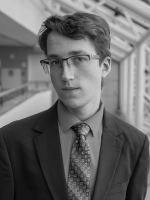Eighty years after the construction of the incarceration camp at Minidoka began, survivors and family members gathered to commemorate the legacy and lessons of the site.
The event, entitled "80 Years of Reckoning: The Lessons and Legacy of Minidoka," was put on by Friend of Minidoka, a non-profit agency.
For almost four years during World War II, President Franklin D. Roosevelt ordered 120,000 Japanese Americans into detainment.
Wendy Toduka’s family was incarcerated at Minidoka during that period. Toduka worked as a journalist in the San Francisco Bay Area for over 40 years, becoming the first Asian-American primetime news anchor in the region.
After retiring, she published an op-ed in The Seattle Times, entitled Minidoka in My Bones.
Toduka planned to attend the event but canceled after she was exposed to COVID-19. Instead, the executive director of Friends of Minidoka, Robin Achilles, read Toduka’s op-ed to the audience.
“We must continue to protect Minidoka and the stories of the survivors and descendants. It reminds us how fragile freedom is, even in the land of the free," the op-ed read.
The op-ed also spoke on the sentiments she has witnessed against Muslims and other Asian populations, especially in the last twenty years.
Former Idaho Supreme Court Justice Jim Jones also attended the event. Jones, born in the nearby town of Eden, spoke about his ties to the camp, as well as the rise of hate crimes in Idaho and across the country.
“If you don't reckon with that past and deal with it and understand what was wrong and why we did some things that were just absolutely deplorable, you won't be able to stop that kind of thing from happening in the future,” Jones said.
Jones went on to commemorate the survivors who stayed in Idaho after their incarceration.
“Some of the people who were uprooted and brought here actually stayed in Idaho," Jones said. "And they've enriched Idaho."
Rangers at the site gave driving tours around the grounds after the ceremony, giving visitors a first-hand look at the incarceration camp.



